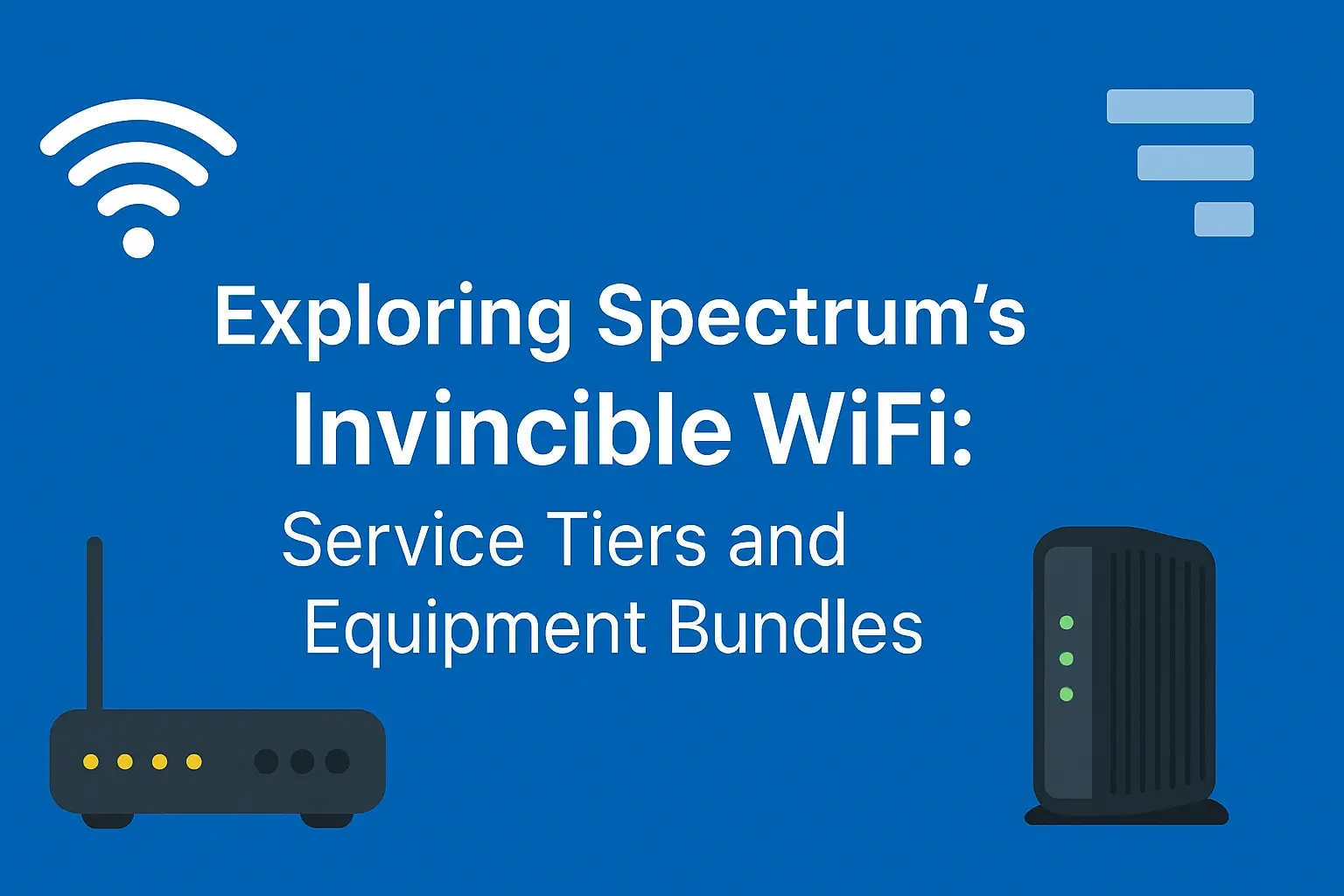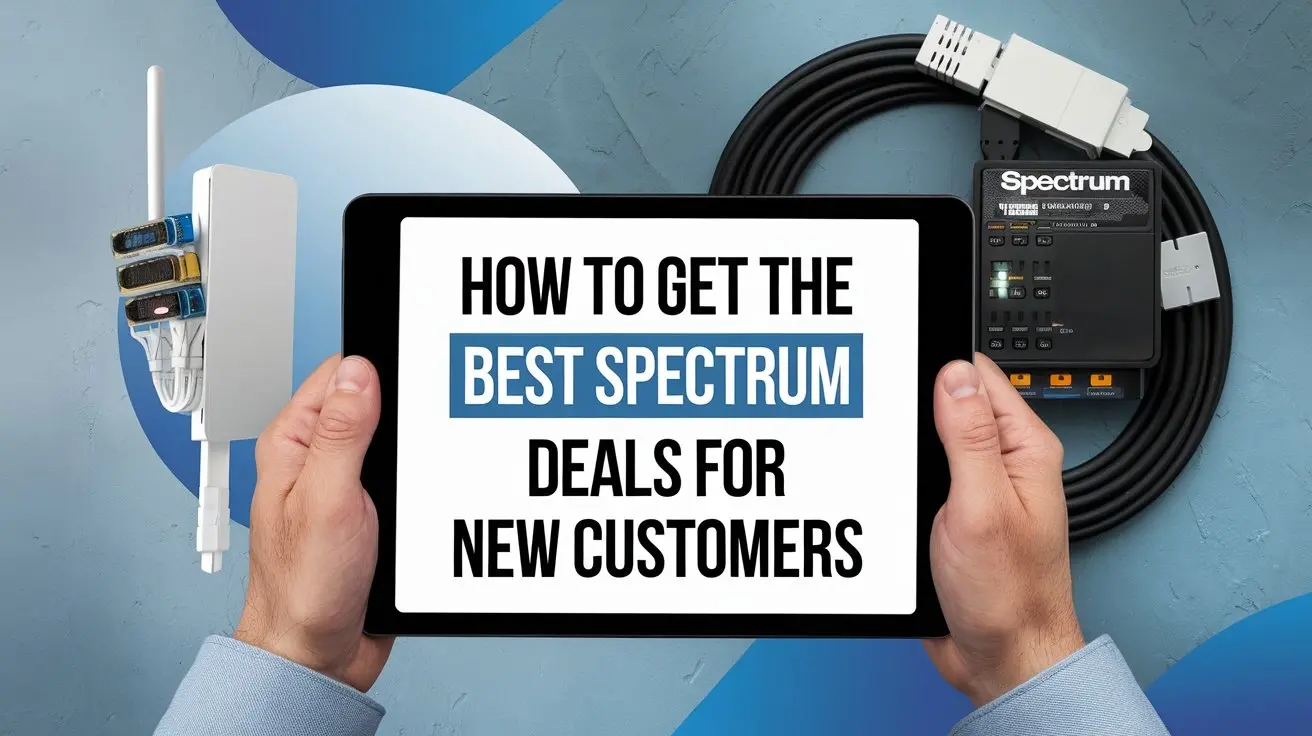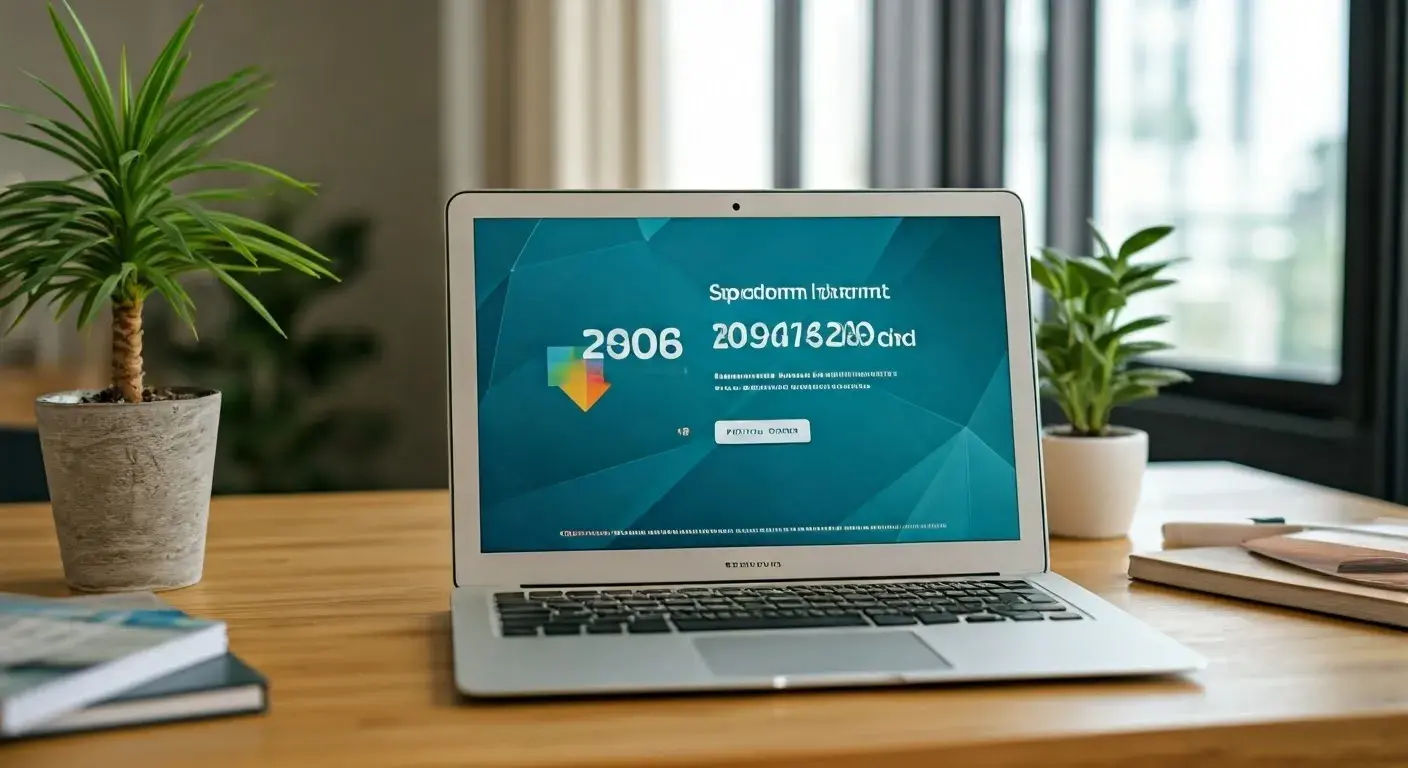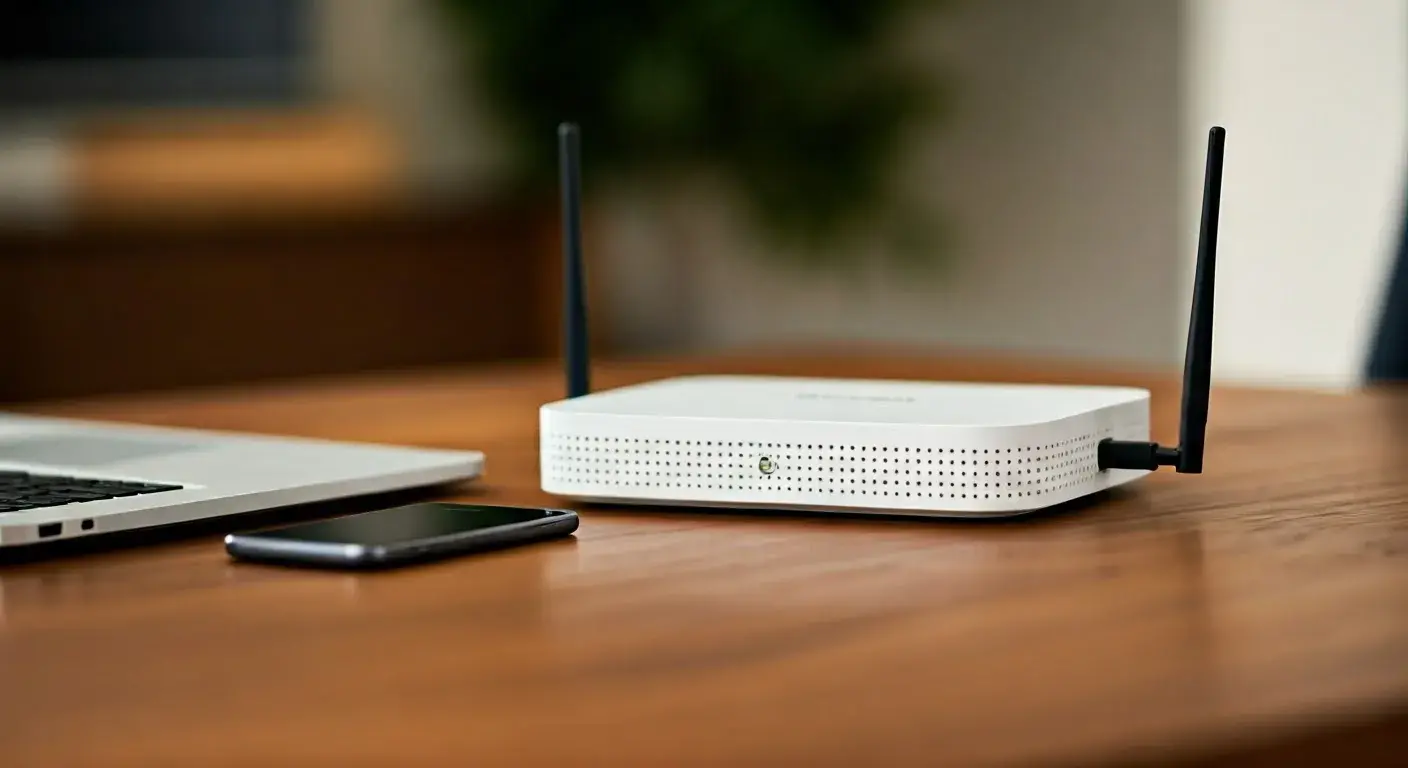Spectrum Internet Packages: Your Gateway to Connectivity

Discover the ideal Spectrum internet package designed to meet your unique connectivity needs. From blazing-fast speeds for gaming and streaming to reliable connections for remote work, Spectrum offers a gateway to a seamless online experience. Explore your options and unlock the full potential of your digital life.
Understanding Spectrum Internet Packages
In today's digitally driven world, a robust and reliable internet connection is no longer a luxury but a necessity. Spectrum, a leading telecommunications provider in the United States, offers a diverse range of internet packages designed to cater to the varied needs of households and businesses. Whether you're a casual web surfer, a dedicated gamer, a remote professional, or a family juggling multiple devices, Spectrum aims to provide a solution that balances speed, reliability, and affordability. This comprehensive guide will delve into the intricacies of Spectrum internet packages, empowering you to make an informed decision and select the plan that best suits your online lifestyle.
Spectrum's approach to internet service is built around offering high-speed connections without data caps, a significant advantage in an era where online content consumption is constantly increasing. Unlike many competitors who impose strict monthly data limits, Spectrum allows users to stream, download, and browse to their heart's content without the fear of incurring overage charges or experiencing throttled speeds. This commitment to unlimited data is a cornerstone of their service offering and a major draw for consumers seeking unhindered internet access.
The provider operates on a hybrid fiber-coaxial network, which allows them to deliver impressive download speeds to a vast number of homes. While not entirely fiber-optic in every location, the technology employed by Spectrum is designed to offer speeds that can support the demands of modern internet usage. Understanding the different speed tiers and what they mean for your daily online activities is crucial when selecting the right package. This guide will break down these speeds, explain their implications, and help you match them to your household's unique requirements.
Furthermore, Spectrum often provides attractive bundle options, allowing customers to combine internet services with TV and phone packages. These bundles can offer significant cost savings and simplify household utility management. We will explore these bundling opportunities and highlight the potential benefits for those looking for a more integrated entertainment and communication solution. By the end of this guide, you'll have a clear understanding of what Spectrum offers, how to choose the best plan, and how to maximize your connectivity experience.
Spectrum Internet Speeds and Tiers
The cornerstone of any internet package is its speed. Spectrum offers a range of internet plans, each characterized by different download and upload speeds. These speeds are typically measured in megabits per second (Mbps) and directly impact how quickly you can perform online tasks, from loading web pages to downloading large files and streaming high-definition content. Understanding these tiers is fundamental to selecting a plan that aligns with your household's internet usage patterns.
Spectrum's internet plans generally fall into several categories, each targeting a different user profile:
- Basic/Standard Speeds: These plans are suitable for individuals or small households with minimal internet needs. Activities like checking emails, browsing social media, and occasional web surfing are well within the capabilities of these tiers. For 2025, basic plans often start around 100-200 Mbps download speeds. While this might seem modest, it's often sufficient for a single user or a couple with light internet habits. Upload speeds in this tier are typically lower, which can affect video conferencing quality or uploading large files.
- Mid-Tier Speeds: For households with multiple users or those who engage in more demanding online activities, mid-tier plans offer a significant upgrade. These speeds are ideal for streaming HD content on multiple devices simultaneously, online gaming, and moderate file sharing. In 2025, these plans commonly range from 300 Mbps to 500 Mbps download. This provides ample bandwidth for a typical family to enjoy their online entertainment and productivity without experiencing significant lag or buffering.
- High-Speed/Gigabit Tiers: Spectrum's higher-end plans are designed for power users, large households with numerous connected devices, and those who require the fastest possible internet speeds. This includes avid online gamers, content creators, professionals working with large datasets, and households that stream 4K content extensively. Spectrum offers plans that can reach up to 1 Gbps (1000 Mbps) download speeds. These gigabit plans ensure that even the most demanding online activities are handled with ease, providing a truly seamless and responsive internet experience. Upload speeds also see a notable increase in these tiers, which is beneficial for uploading videos, participating in high-quality video calls, and other bandwidth-intensive upload tasks.
It's important to note that advertised speeds are typically "up to" speeds, meaning you may not always achieve the maximum download or upload rate. Factors such as the number of devices connected, the quality of your home network (router and Wi-Fi signal), and network congestion in your area can influence actual performance. However, Spectrum's infrastructure is designed to deliver consistent and reliable speeds within these advertised tiers.
When considering which speed tier is right for you, it's helpful to think about the number of people in your household, the types of activities you engage in online, and the number of devices that will be connected simultaneously. A good rule of thumb is to err on the side of a slightly higher speed tier if you're unsure, as it provides more headroom for future needs and ensures a smoother experience during peak usage times. For example, if you have two teenagers who are both avid gamers and streamers, a mid-tier or even a gigabit plan might be a wise investment to avoid frustration.
Download vs. Upload Speeds: What's the Difference?
Understanding the distinction between download and upload speeds is critical. Download speed refers to the rate at which data is transferred from the internet to your device. This is what you experience when streaming videos, loading web pages, downloading files, and browsing the web. The higher the download speed, the faster these actions will occur.
Upload speed, on the other hand, refers to the rate at which data is transferred from your device to the internet. This is important for activities like sending emails with large attachments, uploading photos and videos to social media or cloud storage, participating in video conferences, and playing online multiplayer games where your actions need to be transmitted quickly to the game server. In recent years, as video conferencing and content creation have become more prevalent, upload speeds have gained significant importance for many users.
Spectrum's plans often feature asymmetrical speeds, meaning download speeds are considerably higher than upload speeds. This is common for most residential internet services, as the majority of internet usage involves downloading content. However, for users who heavily rely on uploading data, looking for plans with more balanced or higher upload speeds becomes a priority. For 2025, Spectrum's higher-tier plans are increasingly offering more competitive upload speeds, acknowledging this growing user need.
Unlimited Data: A Spectrum Advantage
One of the most significant selling points of Spectrum's internet packages is their commitment to unlimited data. In a landscape where many internet service providers (ISPs) impose monthly data caps, Spectrum allows its customers to use as much internet as they need without worrying about exceeding a limit or incurring extra charges. This is particularly beneficial for households that consume a lot of data through streaming services (Netflix, Hulu, YouTube), online gaming, frequent large file downloads, or extensive use of cloud-based applications.
Data caps can be a major source of frustration for users, leading to unexpected bills or a reduction in service speed once the cap is reached. Spectrum's unlimited data policy removes this concern, offering a truly unhindered online experience. This makes Spectrum an attractive option for families, heavy streamers, and anyone who wants peace of mind regarding their internet usage. For 2025, this unlimited data policy continues to be a key differentiator for Spectrum in the competitive ISP market.
Factors to Consider When Choosing Your Spectrum Package
Selecting the right Spectrum internet package involves more than just looking at the advertised speeds. Several factors come into play, and understanding them will help you make a choice that truly fits your lifestyle and budget. Ignoring these elements could lead to an over- or under-specced plan, both of which can be suboptimal.
Household Size and Internet Usage
The number of people in your household and their individual internet habits are primary determinants of the speed you'll need. A single person who primarily uses the internet for email and occasional browsing will have very different requirements than a family of five with multiple teenagers who are constantly streaming, gaming, and video chatting.
Single User/Couple (Light Use): If it's just you or you and a partner, and your online activities are limited to checking emails, browsing news sites, social media, and perhaps streaming one show at a time in standard definition, a basic or mid-tier plan (e.g., 100-300 Mbps) might suffice. For 2025, even these lower tiers offer substantial bandwidth for such use cases.
Small Family (Moderate Use): For a family of 3-4 with moderate internet use – streaming HD content on a couple of devices, some online gaming, and general web browsing – a mid-tier plan (e.g., 300-500 Mbps) is generally recommended. This provides enough bandwidth to prevent buffering and lag for most common activities.
Large Family/Power Users (Heavy Use): Households with 5 or more people, or those with individuals who engage in high-bandwidth activities like 4K streaming, competitive online gaming, video conferencing for work, or frequent large file uploads/downloads, will benefit most from Spectrum's higher-speed plans, including gigabit options (e.g., 500 Mbps - 1 Gbps). These plans ensure that multiple demanding activities can occur simultaneously without performance degradation.
Number of Connected Devices
In 2025, it's not uncommon for a single household to have dozens of internet-connected devices. This includes smartphones, tablets, laptops, smart TVs, gaming consoles, smart home devices (thermostats, lights, speakers, security cameras), and even appliances. Each of these devices consumes a portion of your available bandwidth. The more devices you have connected simultaneously, the more bandwidth you will need to ensure a smooth experience for all of them.
Consider a scenario where a smart TV is streaming a 4K movie, a gaming console is downloading a large game update, a laptop is being used for a video conference, and several smartphones are browsing the web and social media. All these activities, happening at once, require significant combined bandwidth. Therefore, if your home is a hub for many connected devices, opting for a higher-speed plan is a prudent choice.
Specific Online Activities
The nature of your online activities plays a crucial role in determining the required speed. Different tasks have vastly different bandwidth requirements:
- Web Browsing & Email: Very low bandwidth requirements. Even basic plans can handle this easily.
- Social Media: Low to moderate bandwidth.
- Standard Definition (SD) Streaming: Moderate bandwidth. A plan around 5-10 Mbps per stream is generally sufficient.
- High Definition (HD) Streaming: Higher bandwidth. Around 25 Mbps per stream is recommended. For multiple HD streams, you'll need significantly more.
- 4K Ultra HD Streaming: Very high bandwidth. Around 50-100 Mbps per stream is recommended.
- Online Gaming: While download speed is important for downloading games and updates, latency (ping) is often more critical for real-time gameplay. However, a stable connection with adequate bandwidth (often 50-100 Mbps or higher for competitive gaming) is essential to avoid lag.
- Video Conferencing (e.g., Zoom, Teams): Moderate to high bandwidth, especially for upload speed. HD video conferencing can require 5-10 Mbps upload and download.
- Large File Downloads/Uploads: High bandwidth is essential. The larger the file, the more you'll appreciate higher download (for downloading) and upload (for uploading) speeds.
By assessing your primary online activities, you can better estimate the bandwidth you'll need. For instance, if 4K streaming on multiple devices is a daily occurrence, a gigabit plan is likely your best bet. If you're a casual gamer and primarily stream in HD, a mid-tier plan might be sufficient.
Budget Considerations
Internet service is a recurring monthly expense, so it's vital to consider your budget. Spectrum's plans vary in price, with higher speeds and more advanced features naturally costing more. It's a balancing act between getting the performance you need and staying within your financial comfort zone.
When evaluating costs, remember to look beyond the advertised monthly price. Many providers, including Spectrum, may offer introductory pricing for a limited period (e.g., 12 or 24 months). After this promotional period, the price will typically increase to the standard rate. It's crucial to understand the long-term cost of a plan, not just the initial promotional offer. Also, factor in potential equipment rental fees if you don't plan to use your own compatible modem/router. While Spectrum offers unlimited data, which eliminates a common variable cost, the base price of the plan is still a significant factor.
Consider if bundling services (internet, TV, phone) could offer a better overall value. Sometimes, a bundle deal can be more cost-effective than subscribing to each service individually. However, ensure you genuinely need all the bundled services to avoid paying for extras you won't use.
Spectrum Internet Plans Overview (2025)
Spectrum continuously updates its offerings to meet evolving consumer demands. While specific plan names and exact speeds can vary slightly by region and are subject to change, here's a general overview of the types of Spectrum internet packages you can expect to find in 2025, focusing on their core offerings and typical speed ranges.
It's crucial to visit the official Spectrum website or contact them directly for the most accurate and up-to-date information for your specific address, as availability and pricing can differ.
Spectrum Internet Ultra
This is often Spectrum's flagship offering, designed for households with high internet demands. It typically provides speeds that can support multiple users streaming, gaming, and working from home simultaneously.
- Typical Download Speeds: Up to 500 Mbps
- Typical Upload Speeds: Up to 10 Mbps (Note: Upload speeds on mid-to-high tiers are often a point of comparison with competitors. Spectrum's upload speeds have been improving, but it's always worth checking the latest figures.)
- Best For: Large families, avid streamers (HD and 4K), serious gamers, users with many connected smart devices, and those who frequently download or upload large files.
- Data Cap: Unlimited
Spectrum Internet Gig
This plan represents Spectrum's highest tier of residential internet service, offering speeds that are among the fastest available to consumers. It's engineered for the most demanding online activities.
- Typical Download Speeds: Up to 1 Gbps (1000 Mbps)
- Typical Upload Speeds: Up to 10 Mbps (Again, verify the latest upload speeds, as these can be a crucial factor for some users.)
- Best For: Households with extremely high internet usage, multiple users engaged in bandwidth-intensive activities concurrently (e.g., 4K streaming on several devices, professional-grade online gaming, content creation, heavy cloud computing), and future-proofing your home network for upcoming technological advancements.
- Data Cap: Unlimited
Spectrum Internet (Standard/Base)
This is Spectrum's entry-level plan, designed for individuals or smaller households with more basic internet needs. It offers a solid foundation for everyday online tasks.
- Typical Download Speeds: Up to 300 Mbps
- Typical Upload Speeds: Up to 10 Mbps
- Best For: Single users, couples, or small families with moderate internet use. Suitable for web browsing, email, social media, streaming SD/HD content on one or two devices, and light online gaming.
- Data Cap: Unlimited
Important Considerations for 2025 Plans:
- Promotional Pricing: Spectrum, like most ISPs, often offers introductory pricing for new customers, typically for the first 12 or 24 months. Be aware of the standard pricing that applies after the promotional period ends.
- Equipment Fees: You may need to rent a modem and router from Spectrum, which incurs a monthly fee. Alternatively, you might be able to use your own compatible equipment to save on these costs.
- Installation Fees: There might be an installation fee, though this can sometimes be waived as part of promotional offers or if you opt for self-installation.
- Availability: Not all plans are available in every Spectrum service area. High-speed and gigabit plans often depend on the infrastructure deployed in your specific neighborhood. Always check for availability at your address.
To get the most precise details, it is always recommended to visit the official Spectrum website or speak with a Spectrum representative. They can provide personalized recommendations based on your location and needs.
Spectrum Internet Bundles and Deals
Spectrum offers a compelling advantage for consumers looking to consolidate their home services through bundled packages. By combining internet, TV, and home phone services, customers can often achieve significant cost savings compared to subscribing to each service individually. These bundles are a popular choice for many households seeking convenience and value.
Benefits of Bundling with Spectrum
- Cost Savings: This is the primary driver for most consumers opting for bundles. Spectrum frequently offers discounted rates on bundled packages, making it a more affordable option than purchasing separate services. The savings can be substantial, especially over the long term.
- Convenience: Managing a single bill from one provider simplifies household finances. Instead of juggling multiple due dates and customer service contacts, you have one point of contact for all your essential home communication and entertainment services.
- Streamlined Installation and Support: When you bundle, the installation process for multiple services can often be coordinated, and customer support issues can sometimes be resolved more efficiently by a single provider.
- Access to Multiple Services: Bundles allow you to easily add TV channels, premium movie networks, or home phone features to your internet service without the hassle of setting up separate accounts.
Common Spectrum Bundle Options (2025)
Spectrum's bundle offerings are dynamic and can vary based on region and current promotions. However, they generally fall into categories that combine their core services:
- Internet + TV: This is one of the most popular bundles. It typically includes a Spectrum internet plan (often a mid-tier or higher speed) paired with a selection of TV channels. The TV packages can range from basic cable lineups to comprehensive channel selections with premium movie channels.
- Internet + TV + Phone: This triple-play bundle offers the most comprehensive home connectivity solution. It includes internet, a TV package, and Spectrum's home phone service, which often features unlimited local and long-distance calling within the US, Canada, and Mexico.
- Internet + Phone: For those who don't require traditional cable TV but want to consolidate their internet and home phone services, this dual-play bundle is an option.
Example Scenario: A family might opt for the "Spectrum One" package (a common promotional bundle name), which often includes their high-speed internet (e.g., 300 Mbps) and a robust TV package, sometimes with added benefits like free Wi-Fi hotspots or mobile lines. These packages are designed to offer a significant value proposition for new customers.
Current Deals and Promotions (2025)
Spectrum actively runs promotional campaigns to attract new subscribers and retain existing ones. These deals can include:
- Introductory Pricing: As mentioned, significantly reduced monthly rates for the first 12-24 months.
- Free Installation: Waived installation fees, which can save customers a one-time charge.
- Discounted Equipment: Reduced rental fees for modems or routers.
- Bundled Service Discounts: Enhanced savings when combining two or three services.
- Gift Cards or Other Incentives: Sometimes, new customers may receive gift cards or other perks upon signing up for specific plans or bundles.
It is essential to regularly check the Spectrum deals page or speak with a sales representative to learn about the latest offers available in your area. Keep in mind that these promotions often have specific terms and conditions, including contract lengths and price increases after the promotional period.
How to Choose the Right Spectrum Plan: A Step-by-Step Guide
Navigating the options for Spectrum internet packages can seem daunting, but by following a structured approach, you can confidently select the plan that best meets your needs and budget. This step-by-step guide breaks down the process into manageable actions.
Step 1: Assess Your Household's Internet Needs
Before looking at any specific plans, take an honest inventory of how your household uses the internet. Ask yourself the following questions:
- How many people regularly use the internet in your home?
- What are the primary online activities for each person? (e.g., streaming, gaming, remote work, video calls, social media, general browsing)
- How many devices are typically connected to the internet simultaneously? (Include smartphones, tablets, laptops, smart TVs, gaming consoles, smart home devices)
- Do you frequently download or upload large files?
- Do you stream content in 4K resolution?
Use the information discussed earlier in the "Factors to Consider" section to estimate the bandwidth required for your typical usage patterns.
Step 2: Check Spectrum Availability at Your Address
Spectrum's service availability varies by location. The first practical step is to confirm which Spectrum internet plans are actually offered at your specific address. This is crucial because not all plans, especially the highest-speed gigabit options, are available everywhere.
How to Check:
- Visit the official Spectrum website.
- Enter your street address in the availability checker tool.
- The website will then display the plans and speeds that are available to you.
If gigabit speeds are not available, don't be discouraged. Spectrum's mid-tier and even their standard plans offer substantial bandwidth that can still provide an excellent online experience for many users.
Step 3: Compare Available Plans and Speeds
Once you know which plans are available, compare them based on the download and upload speeds offered. Refer back to your assessment in Step 1. If your household has high demands, prioritize plans with higher download speeds. If you engage in activities that require significant uploading (e.g., frequent video conferencing, content creation), pay close attention to the upload speeds, although remember that these are often lower than download speeds with Spectrum.
Example Comparison Table (Illustrative - Actual 2025 plans may vary):
| Plan Name (Example) | Download Speed (Up to) | Upload Speed (Up to) | Ideal For | Estimated Monthly Price (Promotional) |
|---|---|---|---|---|
| Spectrum Internet (Standard) | 300 Mbps | 10 Mbps | Light to moderate use, 1-3 users | $49.99 - $69.99 |
| Spectrum Internet Ultra | 500 Mbps | 10 Mbps | Moderate to heavy use, 3-5 users, HD/4K streaming | $69.99 - $89.99 |
| Spectrum Internet Gig | 1 Gbps (1000 Mbps) | 10 Mbps | Very heavy use, 5+ users, 4K streaming, gaming, smart homes | $89.99 - $109.99 |
Note: Prices are illustrative and can vary significantly by location and current promotions. Always check Spectrum's official website for accurate pricing.
Step 4: Consider Bundling Options
If you also need TV and/or home phone services, explore Spectrum's bundle deals. Bundling can often provide significant savings and simplify your monthly bills.
- Visit the Spectrum deals page to see current bundle offers.
- Compare the total cost of a bundle against the cost of individual services from Spectrum or other providers.
- Ensure the TV channel lineup and phone features included in the bundle meet your needs.
Step 5: Review Pricing, Contracts, and Fees
Once you've narrowed down your choices, carefully examine the pricing structure:
- Promotional vs. Standard Pricing: Understand the introductory price and how much it will increase after the promotional period (usually 12 or 24 months).
- Contract Length: Spectrum typically offers internet service without a long-term contract, providing flexibility. However, some bundles or promotional offers might involve a contract.
- Equipment Fees: Factor in the cost of renting a modem and router if you don't plan to use your own compatible equipment.
- Installation Fees: Check for any one-time installation charges.
- Data Caps: Reconfirm that the plan has unlimited data, as this is a key Spectrum advantage.
Step 6: Read Reviews and Seek Recommendations
While official information is essential, real-world experiences can offer valuable insights. Look for online reviews from customers in your area regarding Spectrum's service reliability, installation process, and customer support quality. Sometimes, asking neighbors or friends who are Spectrum customers can provide firsthand feedback.
Step 7: Make Your Decision and Sign Up
After completing the above steps, you should have a clear understanding of the best Spectrum internet package for your household. Proceed to sign up online or by phone. Be prepared to provide your service address and payment information.
By systematically evaluating your needs and the available options, you can ensure you select a Spectrum internet package that delivers the performance and value you expect, truly serving as your gateway to seamless connectivity.
Spectrum Internet Installation and Equipment
Once you've chosen your Spectrum internet package, the next crucial steps involve getting your service set up and ensuring you have the right equipment. Spectrum offers different options for installation and equipment, providing flexibility to suit your preferences and technical comfort level.
Installation Options
Spectrum typically offers two primary installation methods:
- Professional Installation: This is the most common and recommended option, especially for new service activations or if you're moving to a location that requires new wiring or setup. A certified Spectrum technician will visit your home on a scheduled date and time to:
- Assess your home's wiring and ensure it's up to standard.
- Install any necessary outlets or connections.
- Connect and activate your modem and router.
- Test the internet connection to ensure it's working optimally.
- Provide a brief overview of your service and answer any questions.
- Self-Installation: For customers who are comfortable with basic technology and are activating service in a location that already has active Spectrum wiring, self-installation can be a viable and often cost-saving option. Spectrum will ship you a self-installation kit, which typically includes:
- A modem (and potentially a router, depending on your package).
- Necessary cables (e.g., coaxial cable, Ethernet cable).
- Clear, step-by-step instructions.
- A phone number or online portal to activate your service once everything is connected.
Spectrum Equipment Options
You have choices when it comes to the equipment needed for your Spectrum internet service:
- Spectrum-Provided Equipment (Modem/Router Rental):
- Modem: Spectrum provides a modem that is compatible with their network and your chosen internet speed. This is essential for connecting your home to Spectrum's infrastructure.
- Router: Many Spectrum plans come with a Wi-Fi router included, or you can rent one separately. This device creates your home Wi-Fi network, allowing all your wireless devices to connect to the internet. Spectrum's routers are typically designed to handle their service speeds and offer features like WPA2 security.
- Your Own Compatible Equipment (BYOD - Bring Your Own Device):
- You have the option to purchase your own modem and router that are compatible with Spectrum's network. This can be a significant cost-saving measure in the long run, as you avoid monthly rental fees.
- Compatibility: It is crucial to ensure that any equipment you purchase is on Spectrum's approved modem/router compatibility list. You can find this list on the Spectrum website or by contacting their customer support. Using an incompatible device will prevent your service from working.
- Performance: When choosing your own equipment, select a modem and router that meet or exceed the speeds of your chosen Spectrum plan to ensure optimal performance. For gigabit plans, you'll need a router capable of handling those high speeds.
Setting Up Your Wi-Fi Network
Regardless of whether you use Spectrum-provided or your own equipment, setting up your Wi-Fi network involves connecting the modem to the wall outlet, connecting the router to the modem (if they are separate devices), and then configuring your Wi-Fi network name (SSID) and password. Spectrum's instructions, whether for professional or self-installation, will guide you through this process. For security, it's always recommended to choose a strong, unique password for your Wi-Fi network.
By understanding your installation and equipment options, you can ensure a smooth transition to Spectrum internet service and set yourself up for a reliable and high-performing online experience.
Spectrum Internet Customer Support and Reliability
When choosing an internet service provider, reliability and the quality of customer support are paramount. A fast internet plan is only as good as its consistent availability and the ease with which you can resolve any issues that arise. Spectrum, as a major player in the telecommunications industry, invests in its network infrastructure and customer service channels to meet these expectations.
Network Reliability
Spectrum utilizes a hybrid fiber-coaxial network, which is known for its robustness and ability to deliver high speeds. While no internet service is entirely immune to outages, Spectrum generally strives for high uptime percentages. Factors influencing reliability include:
- Infrastructure Investment: Spectrum continually invests in upgrading its network to improve capacity and reduce the likelihood of service disruptions.
- Maintenance and Upgrades: Regular maintenance and planned network upgrades are essential for ensuring long-term reliability. Spectrum typically communicates scheduled maintenance that may cause temporary disruptions.
- Geographic Factors: Like all ISPs, Spectrum's network can be affected by severe weather events, physical damage to infrastructure, or local power outages.
For 2025, user reviews and industry reports often place Spectrum's reliability on par with or slightly above many of its competitors, particularly in areas where its network is well-established and recently upgraded.
Customer Support Channels
Spectrum offers a multi-channel approach to customer support, aiming to provide assistance through various convenient methods:
- Online Support and Self-Help: The Spectrum website features an extensive knowledge base, FAQs, troubleshooting guides, and account management tools. This is often the quickest way to find answers to common questions or manage your account.
- Phone Support: Spectrum provides 24/7 customer service via phone for technical support and billing inquiries. Wait times can vary, but the availability of round-the-clock support is a significant advantage.
- In-Person Support: Spectrum has physical retail stores and service centers in many areas where customers can visit for in-person assistance, equipment returns, or to pay bills.
- Social Media Support: Spectrum also offers support through its official social media channels, which can be a responsive way to get quick answers to general questions.
Troubleshooting Common Issues
If you experience internet problems, Spectrum's support resources can help you troubleshoot. Common issues and their potential solutions include:
- No Internet Connection: This could be due to a modem or router issue, a local outage, or a problem with the wiring. Restarting your modem and router is often the first step. Checking the Spectrum outage map online can also help identify widespread issues.
- Slow Speeds: Slow speeds can be caused by too many devices connected, a weak Wi-Fi signal, outdated equipment, or network congestion. Running a speed test and comparing the results to your plan's advertised speeds can help diagnose the problem.
- Wi-Fi Connectivity Problems: Issues with Wi-Fi can stem from router placement, interference from other devices, or outdated router firmware.
When contacting customer support, having your account information ready and being able to describe the issue clearly will help expedite the resolution process. For 2025, Spectrum continues to refine its customer service experience, with ongoing efforts to improve response times and first-call resolution rates.
Comparing Spectrum to Competitors
In the competitive landscape of internet service providers, Spectrum stands out due to its widespread availability, unlimited data policies, and a range of speed options. However, understanding how it stacks up against other major providers is essential for making the best choice.
Key Differentiators for Spectrum
- Unlimited Data: This is arguably Spectrum's most significant advantage. Unlike many competitors who impose data caps, Spectrum offers unlimited data on all its internet plans. This is a major draw for heavy internet users and families who stream extensively or download large files.
- Widespread Availability: Spectrum operates in a vast footprint across the United States, making its services accessible to millions of households.
- No Annual Contracts: Spectrum typically does not require long-term contracts for its internet services, offering customers flexibility and freedom from early termination fees.
- Hybrid Fiber-Coaxial Network: While not always pure fiber-to-the-home (FTTH), Spectrum's advanced coaxial network delivers high speeds that are competitive with many fiber-optic offerings, especially in its higher tiers.
Spectrum vs. Other Major ISPs (General Comparison for 2025)
Spectrum vs. Fiber Providers (e.g., Verizon Fios, AT&T Fiber, Google Fiber):
- Speed: True fiber-optic providers often offer symmetrical upload and download speeds (meaning upload speeds match download speeds), which can be significantly faster than Spectrum's upload speeds, especially for gigabit plans. This is crucial for demanding applications like professional video conferencing, large file uploads, and live streaming.
- Availability: Fiber networks are typically more limited in geographic reach than Spectrum's hybrid network. If fiber is available in your area, it often represents the pinnacle of internet performance.
- Pricing: Fiber plans can sometimes be more expensive, but this varies greatly by provider and location.
- Data Caps: Most fiber providers also offer unlimited data.
Spectrum vs. Cable Providers (e.g., Xfinity/Comcast, Cox):
- Similarities: These providers often use similar hybrid fiber-coaxial network technologies and offer comparable speed tiers. They also frequently offer bundled services and have promotional pricing.
- Differences: Data caps are a key differentiator. Xfinity, for example, has a 1.2 TB data cap on most plans, with overage charges applying after that limit, whereas Spectrum offers unlimited data. Upload speeds can also vary, with some cable providers offering slightly better upload performance on certain tiers. Contract requirements can also differ; while Spectrum is generally contract-free, some cable providers may push for 1- or 2-year contracts.
Spectrum vs. DSL Providers (e.g., CenturyLink/Lumen):
- Speed: DSL technology generally offers much lower speeds than Spectrum's cable internet, especially over longer distances. DSL is typically best suited for areas where faster options are not available.
- Reliability: While DSL can be reliable, its speed is highly dependent on distance from the central office, making it less consistent than cable or fiber.
- Data Caps: Data caps can vary significantly with DSL providers.
Spectrum vs. Fixed Wireless/Satellite Providers (e.g., HughesNet, Viasat, Starlink):
- Speed & Latency: Satellite and fixed wireless services are generally much slower and have higher latency (ping) than cable or fiber. This makes them unsuitable for real-time applications like gaming or high-quality video conferencing.
- Data Caps: These services often have strict data caps and may experience slowdowns once those caps are reached.
- Availability: They are often used in rural areas where traditional wired internet is not available. Starlink, however, is improving speeds and latency in these areas.
Making Your Choice:
Your decision will depend on several factors:
- Availability at your address: This is the primary constraint.
- Your budget: Compare the long-term costs, not just introductory offers.
- Your specific internet needs: Do you need symmetrical speeds for uploading, or are high download speeds for streaming and gaming sufficient?
- Data cap tolerance: If you want unlimited data without worry, Spectrum or fiber providers are generally the best choices.
For many users, Spectrum offers a compelling balance of speed, unlimited data, and widespread availability, making it a strong contender against most competitors, especially those that impose data caps.
Unlocking Your Digital Potential with Spectrum
In conclusion, Spectrum internet packages offer a robust and flexible gateway to the digital world for a vast number of households across the United States. With a commitment to unlimited data, a range of speed tiers designed to accommodate diverse needs, and competitive pricing, Spectrum provides a compelling solution for modern connectivity.
Whether you're a student requiring stable internet for online learning, a professional working remotely and needing reliable video conferencing, a gamer seeking low latency and fast downloads, or a family enjoying streaming services in high definition, Spectrum likely has a plan to suit you. The availability of gigabit speeds in many areas ensures that even the most demanding users can experience top-tier performance, while their more accessible plans provide excellent value for everyday internet use.
Remember to carefully assess your household's specific internet usage, the number of devices you connect, and your budget. By checking availability at your address and comparing the various plans, including potential bundle deals, you can make an informed decision. Consider the long-term costs beyond introductory pricing and whether renting equipment or using your own compatible devices aligns best with your financial goals.
Spectrum's investment in its network infrastructure, coupled with its customer-centric policies like unlimited data and no annual contracts, positions it as a leading choice for reliable and high-performance internet. By leveraging the information in this guide, you are well-equipped to select the Spectrum internet package that will truly serve as your gateway to seamless connectivity, empowering you to work, play, learn, and connect without compromise in 2025 and beyond.





